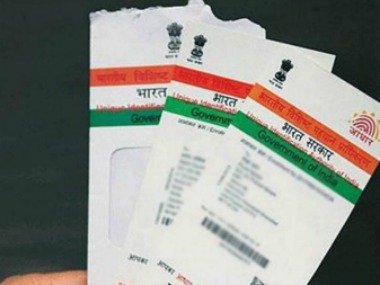The Data State commenced with Dr Vidya Subramanian, a post doctoral fellow at the Indian Institute of Technology Bombay and the Chair, introducing the concept of surveillance capitalism. Panellist Srinivas Kodali, an independent researcher on technology and society, spoke about the Indian IT sector’s role in enabling the State. He raised questions regarding how much the State can be trusted with data. Another panellist, Sakina Dhorajiwala, associated with LibTech India, spoke from the perspective of welfare, throwing light on the high rates of participation in the government’s data collection initiatives from economically marginalised sections of society. “For them, this is the only possible way to access the welfare schemes of the government,” she added. Arguing for civil society’s focus to be directed towards ensuring accountability for errors in data handling by the government, she said: “With the multiplicity of agencies, the buck keeps getting passed around. The state is taken further away from the citizens.” [caption id=“attachment_8056281” align=“alignnone” width=“825”]  The common man needs to be involved in conversations on data through politics.[/caption] Dr Aasim Khan, assistant professor at the Indraprastha Institute of Information Technology, Delhi, spoke about the need to think of data more “conceptually and historically”. He called the first population census in India under the colonial administration a “ghost that continues to haunt us”. According to him, the slogan Hum Kaagaz Nahi Dikhayenge (We shall not show our papers) raised in protests against Citizenship Amendment Act (CAA) and National Register of Citizens (NRC) is a response to that process. After their initial statements, Dr Subramanian asked the panellists: “Can we demand that the government delete all our stored data?” In response, Dr Khan spoke about how little this would achieve since multiple agencies store data on various “mirror sites”. Citing Indian Railways as an example for giving people more choices, Sakina Dhorajiwala said: “They continued to maintain physical counters even after the launch of online ticket booking services. People should have options.” Responding to the discussion on ‘automating’ governance, Dr Subramanian reflected on the “democratic project”. She said, “The purpose of democracy was to de-automate governance.” Both Dr Khan and Srinivas Kodali addressed the need to engage the common man in conversations on data through politics. Dr Khan quoted author Arundhati Roy while talking about the “middle class’ secession” from politics. Srinivas spoke about how limited the academia’s role was in involving the masses in these discussions. He said: “The language for this will come from the people. This is what we have witnessed in the CAA-NRC protests.” While discussing the ubiquity of surveillance systems, Dr Subramanian complained that the brain was the only private space left for individuals. In response to this, Dr Khan quipped: “Actually, China has developed something for that too.” Malvika, a former student of TISS and member of the audience, asked how one could engage with the “Savarna State” to ensure that “the marginalised are not reduced to mere data”. Dr Subramanian responded by saying, “Unfortunately, the marginalised are not even being reduced to data. They have been rendered invisible.” She described this as the biggest failure of the attempt to digitalise administration. Srinivas Kodali spoke about how AADHAR, which was meant to be voluntary at first, was transforming “citizens into consumers” by allowing private corporations to access people’s personal data. Citing the Supreme Court Judgement on the Right to Privacy, Kodali pointed out that citizens have a right to know how their data is being used. He added: “The state can’t let go of its responsibility in the name of national security.” While talking about corporations providing free services in exchange for personal data, Dr Khan said: “If you are buying something, you are a consumer. If you are buying something for free, then you are the product.” Dr Subramanian was skeptical about the prospects of setting up another regulatory authority to handle concerns regarding data. When asked about this, she said, “A regulator is only as good as you let it be. My fear is that another regulator will only become open to manipulation by the authorities in power.” Towards the end of the discussion, Dr Khan invoked the speech delivered earlier during the day by Professor Gopal Guru, editor of the Economic & Political Weekly. Speaking about the importance of governing and not only regulating, he said: “We don’t need laws alone. We need public commissions that talk about truth. We need truth commissions.” Anant Gupta and Sayantan Banerjee are first year MA students of Media and Cultural Studies at the Tata Institute of Social Sciences, Mumbai.
Amid the rise in global surveillance systems, the common man needs to be involved in conversations on data through politics.
Advertisement
End of Article


)
)
)
)
)
)
)
)
)



